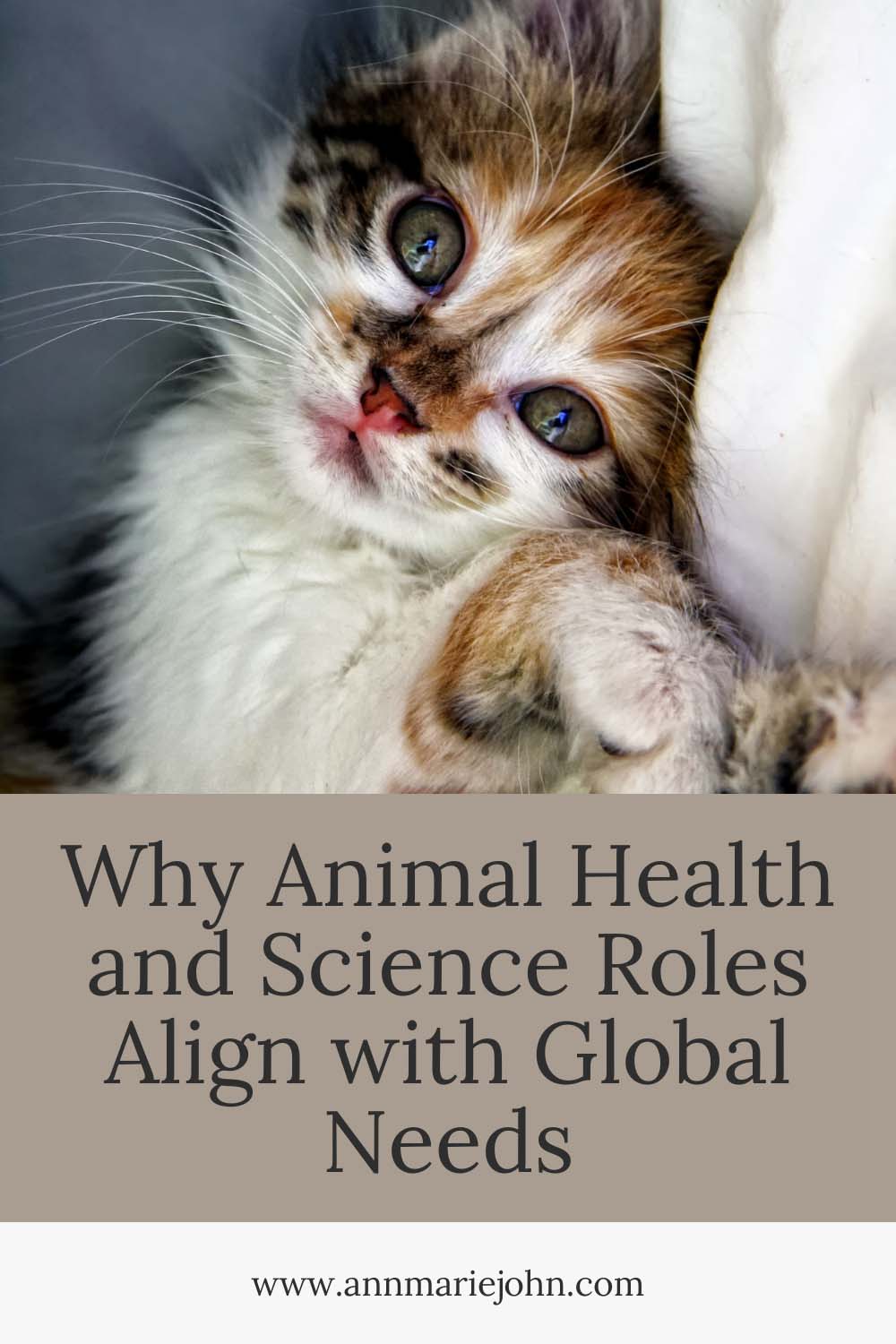With environmental degradation, emerging diseases, climate change, and many other barriers to global health, find out how animal health and science roles can help meet the needs of people around the world.

In an increasingly interconnected world, the intersection of animal health and science has become a crucial focal point for addressing global challenges. This synergy plays a pivotal role in safeguarding the well-being of animals, humans, and the environment. From mitigating zoonotic diseases to advancing sustainable agriculture, animal health and science positions have never been more essential to aligning with global needs. This article explores the multifaceted ways these roles intersect with and address pressing global issues.

Understanding the Intersection
Before delving into the specific ways animal health and science roles align with global needs, it’s essential to understand the nature of this intersection. Animal health and science roles encompass various disciplines, including veterinary medicine, microbiology, genetics, ecology, and animal welfare. These fields collectively contribute to understanding, managing, and improving animal health, which, in turn, has far-reaching implications for human health and the environment. In this case, when training for an animal science major, you will potentially encounter a comprehensive curriculum that integrates these diverse disciplines to provide a holistic understanding of the complexities within the field. Similarly, when training for science roles, you will find yourself at the intersection of several critical areas of study.
Zoonotic Diseases: A Global Threat
One of the most compelling reasons why animal health and science roles are integral to global needs is the constant threat of zoonotic diseases. These are diseases that originate in animals but can be transmitted to humans. Notable examples include Ebola, HIV/AIDS, and, most recently, COVID-19. Zoonotic diseases can have devastating consequences, causing widespread illness, economic disruption, and loss of life.
Animal health and science professionals play a critical role in detecting, monitoring, and preventing the spread of zoonotic diseases. Veterinarians, epidemiologists, and microbiologists work together to identify potential animal outbreaks, track their transmission to humans, and develop strategies for containment and prevention. Their expertise is instrumental in minimizing the impact of these diseases on global health.
Advancing Food Security
As the global population continues to grow, so does the demand for food. Ensuring food security is a complex challenge that involves not only increasing food production but also doing so sustainably. Animal health and science roles are central to this endeavor. Livestock and aquaculture provide a significant portion of the world’s protein intake. However, diseases and poor animal health can devastate these industries, leading to food shortages and economic instability. Veterinary scientists work to develop vaccines, treatments, and management practices that improve the health and well-being of livestock and aquatic animals. By doing so, they contribute to the stability of food supplies worldwide.
Additionally, scientists in animal genetics and nutrition play a pivotal role in enhancing the efficiency of food production. Through selective breeding and the development of optimized diets, they help animals grow faster and produce more efficiently, reducing the environmental impact of agriculture while meeting the needs of a growing population.
Conservation and Biodiversity Preservation
The health and well-being of animals are closely tied to the health of ecosystems. Biodiversity, the variety of life on Earth, is essential for maintaining ecological balance and resilience. Animal health and science roles are critical to preserving and protecting biodiversity. Conservation biologists work to understand the needs of endangered species and develop strategies for their protection and recovery. Veterinary professionals often collaborate with conservationists to provide medical care for animals in the wild, and geneticists contribute to breeding programs to save endangered species from extinction.
Furthermore, understanding the impact of human activities on ecosystems and wildlife health is essential for mitigating the threats of habitat loss, pollution, and climate change. Scientists in various fields study these interactions, providing valuable insights into how to address global environmental challenges.
Promoting Animal Welfare
Beyond the practical benefits for humans and the environment, animal health and science roles align with the global need to promote animal welfare. Ethical treatment of animals is essential to our moral and societal values. Veterinarians and animal scientists advocate for animal welfare, ensuring that animals are treated with dignity and compassion. They develop guidelines and regulations for the humane care and treatment of animals in various settings, from farms to laboratories to homes. By advancing our understanding of animal behavior, genetics, and cognition, these professionals contribute to improving the lives of countless animals worldwide.
In Conclusion
In an interconnected world facing challenges ranging from zoonotic diseases to food security to biodiversity conservation and animal health, science roles have never been more critical. These roles align with global needs by addressing these challenges head-on, often through interdisciplinary collaboration. Moving forward, it is clear that the contributions of animal health and science professionals will continue to be essential for safeguarding the well-being of animals, humans, and the environment. By prioritizing education, research, and ethical considerations, we can harness the full potential of these roles to create a healthier and more sustainable world for all living creatures.
